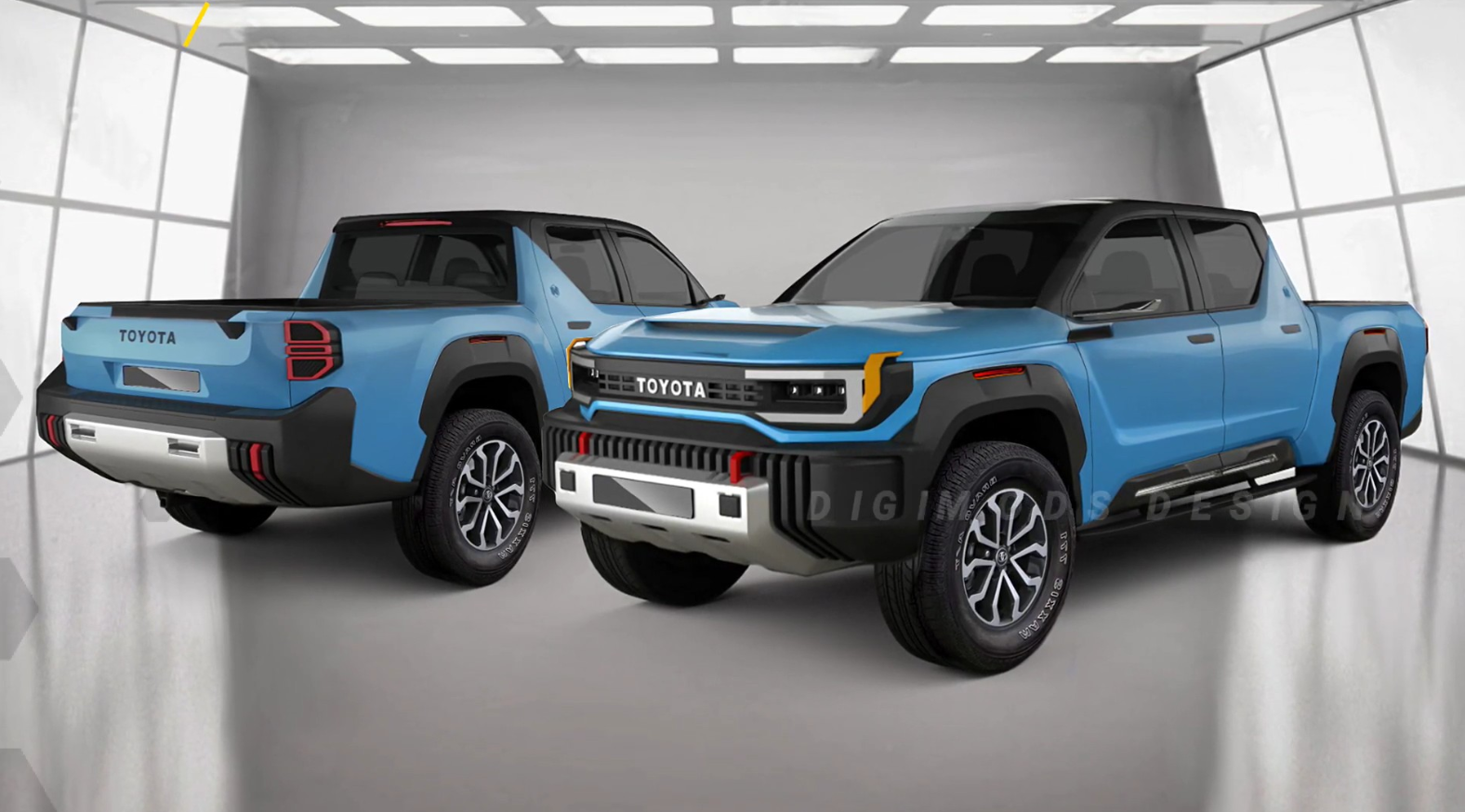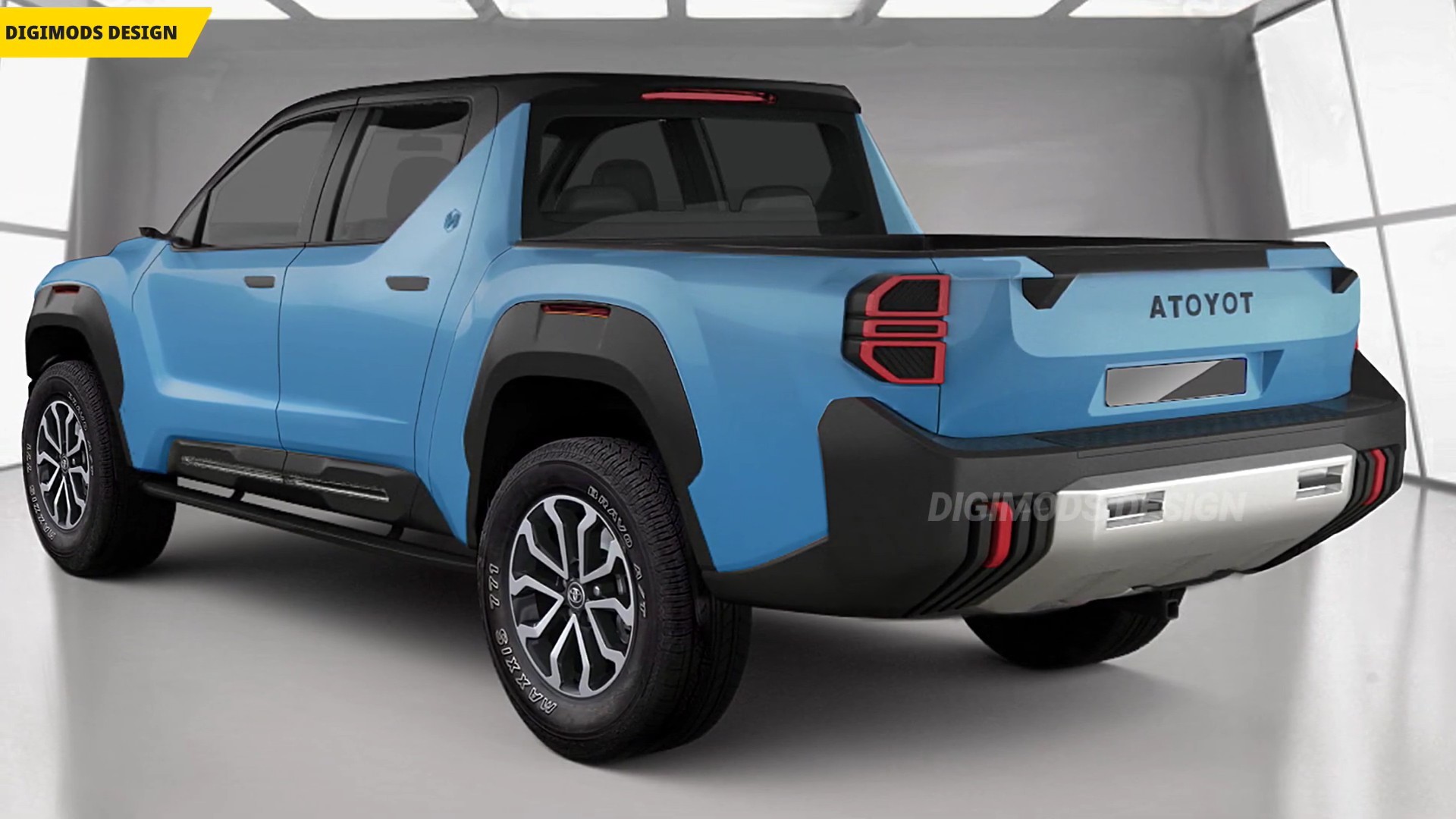
Light Pickup Trucks: Your Comprehensive Guide to Versatility and Value
In the automotive landscape, where behemoth full-size trucks often dominate the headlines, a quieter, yet incredibly versatile segment of vehicles has steadily carved out its niche: the light pickup truck. These nimble workhorses, often referred to as compact or mid-size trucks, strike a harmonious balance between the utility of a traditional truck and the everyday practicality of a car or SUV. They are more than just smaller versions of their heavy-duty counterparts; they represent a smart choice for individuals and families seeking capability without the bulk, offering a blend of efficiency, maneuverability, and surprising utility that makes them highly relevant in today’s diverse automotive market.
What Defines a Light Pickup Truck?
Light pickup trucks are primarily distinguished by their size, payload, and towing capacities, positioning them below full-size and heavy-duty trucks. Historically, this category included truly "compact" trucks, but over the years, many have grown into what are now termed "mid-size."
Key characteristics include:
- Dimensions: They are generally shorter in length and narrower than full-size trucks, making them easier to navigate tight city streets, park in standard spots, and fit into residential garages.
- Payload & Towing: While capable of hauling and towing, their capacities are typically lower than full-size trucks, usually ranging from 1,000 to 1,700 pounds for payload and 3,500 to 7,700 pounds for towing, depending on the model and configuration. This is more than sufficient for most recreational users, DIY enthusiasts, or small business needs.
- Engine Options: They typically feature four-cylinder, V6, or sometimes small turbocharged engines, prioritizing fuel efficiency over raw power.
- Chassis Design: Most light pickups traditionally utilize a body-on-frame construction, similar to their larger siblings, providing durability and strong towing/hauling capabilities. However, a newer sub-category of unibody "trucks" (like the Honda Ridgeline or Hyundai Santa Cruz) has emerged, offering more car-like comfort and ride quality, often at the expense of maximum ruggedness.
This blend of attributes makes light pickup trucks an attractive proposition for those who need a bed for occasional hauling, want off-road capability, or simply prefer the aesthetic and utility of a truck without the commitment to a full-sized vehicle.
The Unmistakable Advantages of Light Pickups
Choosing a light pickup truck comes with a host of compelling benefits that appeal to a wide array of buyers:
- Maneuverability and Parking: Their smaller footprint makes them significantly easier to drive and park in urban environments or crowded parking lots. Navigating narrow trails or construction sites also becomes less of a chore.
- Fuel Efficiency: Generally, light pickups offer better fuel economy than their full-size counterparts, thanks to smaller engines and lighter curb weights. This translates to lower operating costs and fewer trips to the gas station.
- Affordability: Both the initial purchase price and ongoing insurance costs are often lower for light pickup trucks compared to full-size models, making them a more accessible entry point into truck ownership.
- Versatility for Daily Life: They excel as daily drivers, offering comfortable interiors and a smoother ride than older trucks, while still providing the open bed for hauling anything from gardening supplies and furniture to camping gear and bicycles.
- Off-Road Prowess: Many models, particularly those with body-on-frame construction and available 4×4 drivetrains, offer impressive off-road capabilities, making them popular choices for adventurers and outdoor enthusiasts.
- Customization Potential: The aftermarket is rich with accessories for light trucks, allowing owners to personalize their vehicles for specific hobbies, work needs, or aesthetic preferences.
Choosing the Right Light Pickup Truck
Selecting the ideal light pickup truck requires a careful assessment of your specific needs and priorities.
1. Assess Your Needs:
- Primary Use: Will it be a daily commuter, a weekend warrior for DIY projects, an adventure vehicle, or a light work truck?
- Payload & Towing Requirements: How much weight do you realistically need to carry in the bed, or how heavy is the trailer you plan to tow? Don’t overestimate; most people don’t need full-size truck capabilities.
- Passenger Capacity: Do you need a crew cab for family and friends, or is an extended cab or even a single cab sufficient?
- Off-Roading: Do you plan to venture off paved roads frequently? If so, look for models with higher ground clearance, 4×4, and robust off-road packages.
2. Key Considerations:
- Engine Options: Evaluate the balance between power, torque, and fuel economy. Some offer diesel engines for better low-end torque and fuel efficiency, while others have powerful V6s.
- Drivetrain (2WD/4WD): Rear-wheel drive (2WD) is standard and fine for most on-road driving. Four-wheel drive (4WD) is essential for off-roading, snow, or slippery conditions.
- Bed Size & Cab Configuration: Common options include short beds (around 5 feet) and long beds (around 6 feet), paired with extended cabs (smaller rear seats) or crew cabs (full-size rear seats).
- Technology & Safety Features: Modern light trucks offer advanced infotainment systems, driver-assist technologies (e.g., adaptive cruise control, lane-keeping assist), and multiple airbags. Prioritize features that enhance your driving experience and safety.
- Trim Levels: Manufacturers offer a wide range of trim levels, from basic work trucks to luxurious off-road-ready or family-oriented versions. Each trim adds different features, affecting price and capability.
Types and Popular Models
The light pickup truck segment can broadly be categorized into two main types based on their underlying construction:
1. Traditional Body-on-Frame Mid-sizers:
These trucks are built like their full-size counterparts, with a separate body mounted on a rigid frame. This construction provides excellent durability, higher towing and payload capacities, and better articulation for off-roading.
- Toyota Tacoma: Renowned for its legendary reliability, strong resale value, and off-road prowess, especially the TRD Off-Road and TRD Pro trims.
- Ford Ranger: A global bestseller, the Ranger returned to the U.S. market offering strong towing figures, good fuel economy, and available off-road packages.
- Chevrolet Colorado/GMC Canyon: These twins offer a comfortable ride, a choice of powerful engines (including a diesel option for some years), and capable off-road trims (e.g., Colorado ZR2).
- Nissan Frontier: Recently redesigned, the Frontier offers a robust V6 engine, a rugged aesthetic, and capable performance both on and off-road.
2. Unibody Crossovers with Beds:
These vehicles share their platform with SUVs or cars, meaning the body and frame are integrated into a single structure. They prioritize ride comfort, handling, and fuel efficiency, often at the expense of maximum towing/payload or extreme off-road capability.
- Honda Ridgeline: Known for its exceptionally comfortable ride, innovative in-bed trunk, and dual-action tailgate. It drives much like an SUV but offers the utility of a bed.
- Hyundai Santa Cruz: A newer entrant, the Santa Cruz blends SUV comfort with open-bed utility, targeting urban adventurers who need occasional hauling capability in a stylish, compact package.
Living with a Light Pickup Truck: Tips for Owners
Once you’ve chosen your light pickup, here are some tips to maximize your ownership experience:
- Regular Maintenance: Follow the manufacturer’s recommended maintenance schedule. Light trucks work hard, and timely oil changes, tire rotations, and fluid checks are crucial for longevity.
- Understand Load Limits: Always be aware of your truck’s payload and towing capacities. Overloading can be dangerous and cause premature wear on components. Distribute weight evenly in the bed.
- Invest in Accessories: A bed liner is almost essential to protect the bed from scratches and dents. Tonneau covers (bed covers) can protect cargo from the elements and theft, and may even improve fuel economy. Other accessories like bed extenders, cargo management systems, or roof racks can further enhance utility.
- Learn to Drive with a Load/Trailer: If you’re new to trucks, practice driving with a heavy load in the bed or a trailer attached in a safe, open area. Understand how it affects braking, acceleration, and handling.
- Tire Choice Matters: If you plan on significant off-roading, invest in all-terrain (A/T) or mud-terrain (M/T) tires. For general use, all-season tires are usually sufficient.
Potential Challenges and Solutions
While light pickup trucks offer immense value, it’s important to acknowledge their limitations:
- Limited Heavy-Duty Capability: They are not designed for consistently hauling extremely heavy loads or towing large fifth-wheel trailers.
- Solution: Be realistic about your needs. If you frequently tow massive loads or carry tons of material, a full-size truck is a more appropriate choice.
- Smaller Bed Size: While useful, the bed is smaller than a full-size truck’s.
- Solution: Utilize bed extenders, roof racks, or trailers for oversized items. Optimize packing with cargo management systems.
- Fuel Economy (Compared to Cars/SUVs): While better than full-size trucks, they generally consume more fuel than equivalent sedans or small SUVs.
- Solution: Drive conservatively, perform regular maintenance, and consider a tonneau cover to reduce aerodynamic drag.
- Unibody Limitations: Unibody trucks offer a smoother ride but may have lower towing/payload capacities and less ground clearance for serious off-roading compared to body-on-frame models.
- Solution: Choose based on primary use. If comfort and occasional utility are key, unibody is fine. For true ruggedness, stick to body-on-frame.
Estimated Price Table for Popular Light Pickup Trucks (New Models)
Please note: Prices are estimated starting MSRPs for base models and can vary significantly based on trim level, options, region, and current market conditions. Max Payload and Max Towing figures are approximate and depend heavily on specific configurations (engine, drivetrain, cab/bed). Always check manufacturer websites for the most current and accurate information.
| Model | Type | Estimated Starting MSRP (USD) | Max Payload (lbs) (Approx.) | Max Towing (lbs) (Approx.) | Key Feature/Note |
|---|---|---|---|---|---|
| Toyota Tacoma | Body-on-Frame | $32,000 – $35,000 | 1,150 – 1,700 | 3,500 – 6,800 | Legendary reliability, strong resale, off-road trims. |
| Ford Ranger | Body-on-Frame | $33,000 – $36,000 | 1,500 – 1,800 | 3,500 – 7,500 | Turbocharged power, strong towing, modern tech. |
| Chevrolet Colorado | Body-on-Frame | $31,000 – $34,000 | 1,200 – 1,700 | 3,500 – 7,700 | Comfortable ride, capable off-road variants. |
| GMC Canyon | Body-on-Frame | $37,000 – $40,000 | 1,200 – 1,600 | 3,500 – 7,700 | Premium sibling to Colorado, upscale interior. |
| Nissan Frontier | Body-on-Frame | $30,000 – $33,000 | 1,150 – 1,600 | 3,500 – 6,720 | Robust V6 engine, rugged design, new generation. |
| Honda Ridgeline | Unibody | $40,000 – $43,000 | 1,500 – 1,600 | 5,000 | SUV-like comfort, in-bed trunk, dual-action tailgate. |
| Hyundai Santa Cruz | Unibody | $28,000 – $31,000 | 1,500 – 1,900 | 3,500 – 5,000 | Compact, stylish, car-like handling, urban-focused. |
Frequently Asked Questions (FAQ)
Q1: What’s the main difference between a light pickup truck and a full-size pickup truck?
A1: Light pickup trucks (compact/mid-size) are smaller, more fuel-efficient, easier to maneuver, and generally less expensive than full-size trucks. They have lower payload and towing capacities but are more than sufficient for most everyday tasks and recreational use. Full-size trucks offer maximum capability for heavy-duty work.
Q2: Are light pickup trucks fuel-efficient?
A2: Compared to full-size trucks, yes, they generally offer better fuel economy. However, they typically consume more fuel than sedans or small SUVs due to their heavier build and less aerodynamic shape. Modern engines and transmissions are continuously improving their efficiency.
Q3: Can light pickup trucks tow a camper or a boat?
A3: Absolutely! Many light pickup trucks are rated to tow between 5,000 to 7,700 pounds, which is enough for many small to medium-sized travel trailers, utility trailers, ATVs, or small boats. Always check the specific model’s towing capacity and ensure your trailer’s weight is within that limit.
Q4: Are light pickup trucks good for families?
A4: Modern light pickup trucks, especially crew cab configurations, offer comfortable seating for four or five passengers. They can serve as versatile family vehicles, providing open-bed utility for hobbies, sports equipment, or home improvement projects, while also being suitable for daily commutes.
Q5: Do light pickup trucks hold their value well?
A5: Generally, yes. Popular models like the Toyota Tacoma and Ford Ranger are known for excellent resale value due to their reputation for reliability and utility. Demand for these versatile vehicles remains strong.
Conclusion
Light pickup trucks occupy a vital space in the automotive market, offering a compelling blend of practicality, capability, and efficiency. They are the ideal solution for those who appreciate the utility of an open bed and the ruggedness of a truck but don’t require the immense scale or cost of a full-size model. Whether you’re a weekend adventurer, a DIY enthusiast, a small business owner, or simply someone who appreciates versatility, a light pickup truck provides a smart, manageable, and highly capable vehicle that can adapt to a wide range of needs. As the automotive world continues to evolve, the enduring appeal and increasing sophistication of light pickup trucks ensure their continued relevance as a truly versatile and valuable choice.

 Trucks for Sale Find the best deals on used trucks for sale across the USA. Browse pickups, semi trucks, dump trucks and more – updated daily
Trucks for Sale Find the best deals on used trucks for sale across the USA. Browse pickups, semi trucks, dump trucks and more – updated daily